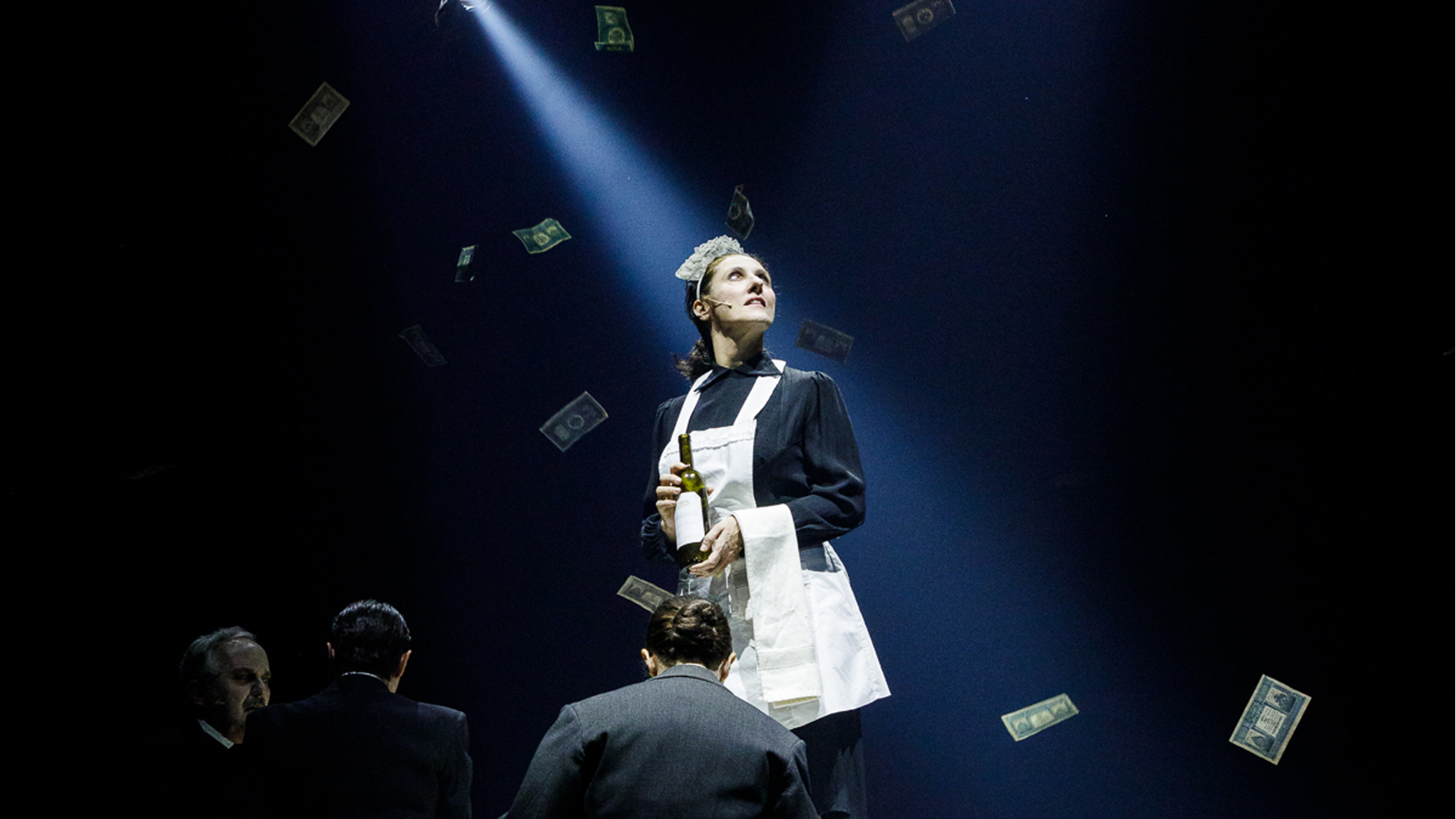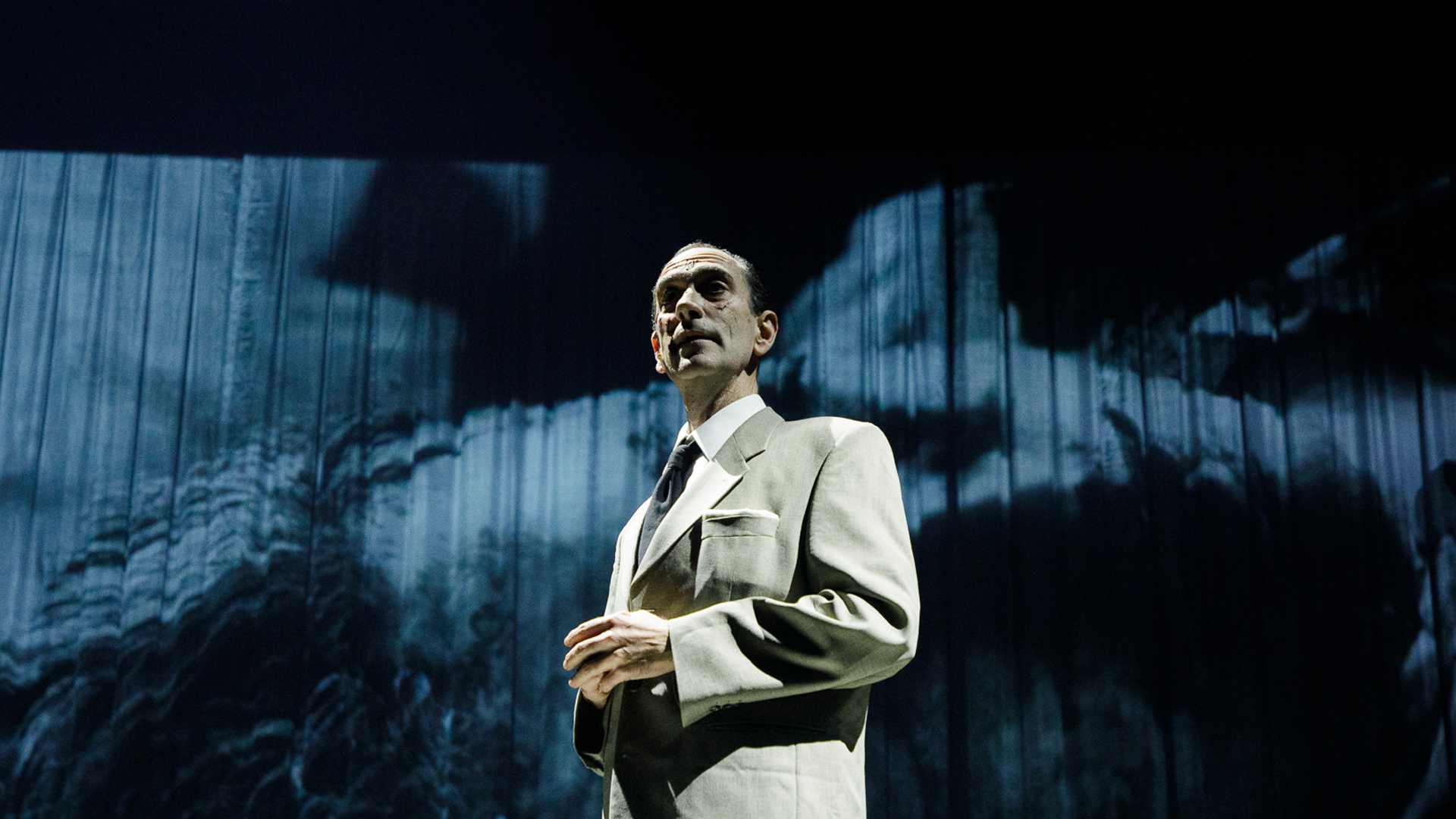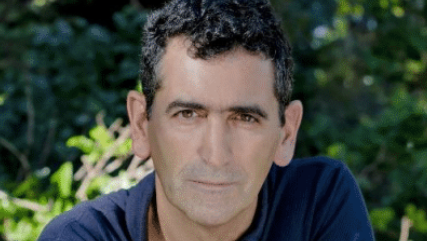Writer
Albert Boronat, Juan Cavestany, Andrés Lima and Juan Mayorga
Playwriting
Albert Boronat and Andrés Lima
Director
Andrés Lima
Cast (playing these and other characters)
Cristina Arias (José Antonio Primo de Rivera, Von Richthofen, Rosario La Dinamitera), Mamen Camacho (La Pasionaria, General Rojo, Mika Etchebéhère), Antonio Durán “Morris” (Queipo de Llano, Obispo Antonio Montero, Nicolás Franco), Natalia Hernández (Yangüas Messía, Cardenal Gomá, Señora Guerra), María Morales (Manuel Azaña, Largo Caballero, Clara Campoamor), Paco Ochoa (Pau Casals, George Orwell, General Mola), Guillermo Toledo (General Yagüe, Alfonso XIII, General Miaja), Juan Vinuesa (Francisco Franco, Norman Bethune, Ramiro de Maeztu) and Coro Madrid
Set and costume design
Beatriz San Juan
Lighting
Pedro Yagüe
Video creation
Miquel Àngel Raió
Musical composition
Jaume Manresa
Sound designer
Kike Mingo
Characterisation
Cécile Kretschmar
Documentalist
Llorenç Ramis Garcia
Map of Bombed Madrid
Luis de Sobrón and Enrique Bordes
Assistant director
Laura Ortega
Assistant stage designer
Arantxa Melero
Wardrobe assistant
Berta Navas
Lighting assistant
Marina Palazuelos
Video creation assistant
Gonzalo Bernal
Communication Check In Producciones
Pepe Iglesias
Production assistant Check In Producciones
Mayte Barrera
Poster design
Emilio Lorente
Trailer and photography
Bárbara Sánchez Palomero
Producer Check In Producciones
Joseba Gil
Producer
Centro Dramático Nacional, Check in Producciones and El Terrat
Collaboration
Cultural Affairs, Teatre L'Artesà and Teatro de La Abadía













